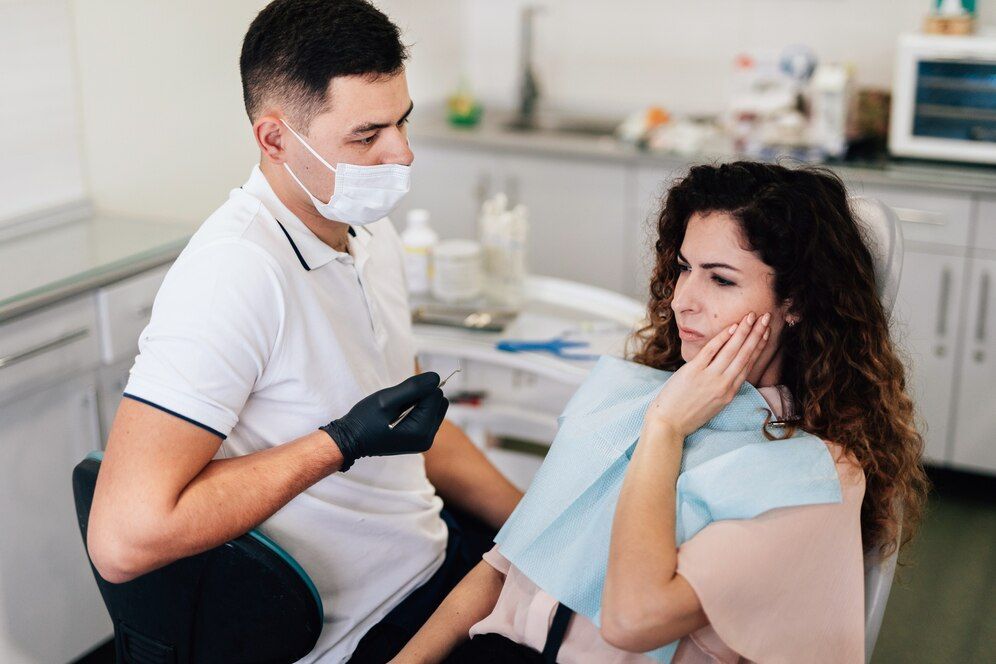Heart Health

Teeth grinding, also known as bruxism, is a common condition affecting millions of people worldwide. While it can occur both during the day and at night, nighttime teeth grinding can have significant consequences on an individual's oral health and sleep quality. Nighttime bruxism can lead to a range of problems, such as tooth damage, jaw pain, and headaches, while also potentially contributing to sleep disruptions.
In addition to the physical discomfort and damage it can cause, teeth grinding may also be linked to sleep disorders like sleep apnea, making proper detection and intervention even more critical to overall health and well-being. By addressing teeth grinding, individuals can not only preserve their oral health but also improve their sleep and prevent potential complications associated with this often overlooked condition.
In this informative blog post, we will explore the connection between teeth grinding and sleep, discuss the signs and symptoms to watch for and delve into the various treatment options available. We will share various strategies to help protect your smile, improve your sleep quality, and promote a healthier, more rested life.
Understanding Teeth Grinding and Its Effects on Sleep
Teeth grinding or bruxism is an unconscious, involuntary habit of clenching and grinding teeth together, often occurring during sleep. Frequent nighttime grinding can result in numerous dental issues, such as fractured, loose, or worn-down teeth, tooth sensitivity, and gum recession. Additionally, teeth grinding can put immense strain on jaw muscles and the temporomandibular joint (TMJ), leading to jaw pain and discomfort.
Moreover, teeth grinding can negatively impact sleep quality. The constant jaw movement and pressure can make it difficult for the brain to enter the deep, restorative stages of sleep, leading to excessive daytime fatigue, irritability, and sleep disruptions for both the affected individual and their sleeping partner.
The Link Between Teeth Grinding and Sleep Apnea
Bruxism is often associated with sleep disorders, most notably sleep apnea. Obstructive Sleep Apnea (OSA) is when the airway becomes partially or completely blocked during sleep, causing pauses in breathing. The sleep apnea-bruxism connection is believed to result from the body's effort to open the airway by moving the jaw forward, unconsciously grinding the teeth.
Due to this connection, it is crucial to identify and address any potential sleep-related concerns in individuals struggling with teeth grinding. Dental sleep medicine professionals can help assess the underlying causes and recommend appropriate treatment options to ensure both oral and sleep health.
Signs and Symptoms of Teeth Grinding
It can be challenging to self-diagnose teeth grinding, especially when it primarily occurs during sleep. However, some key signs and symptoms can indicate this condition, including:
1. Morning headaches
2. Sore or tense jaw muscles
3. Pain or discomfort in the temporomandibular joint
4. Unusual tooth sensitivity or pain
5. Flattened, fractured, or loose teeth
6. Damage to the inside of the cheeks from biting
If you or your sleeping partner observe any of these signs, it is essential to consult with a dental professional to identify the root cause and develop an effective treatment plan.
Treatment Options and Strategies for Managing Teeth Grinding
Multiple approaches can help manage and reduce teeth grinding, promoting better oral health and sleep quality. Some proven strategies and treatment options include:
1. Custom-Fitted Dental Appliances: Dental sleep medicine professionals can create a personalized mouthguard or dental splint to protect the teeth from grinding during sleep. These devices provide a cushion between the upper and lower teeth, preventing tooth damage and reducing muscle strain.
2. Stress Management and Relaxation Techniques:
Since stress often contributes to teeth grinding, incorporating relaxation techniques into your daily routine can help alleviate grinding tendencies. Consider yoga, deep breathing, meditation, or progressive muscle relaxation.
3. Sleep Hygiene: Optimizing your sleep environment and habits can improve overall sleep quality, potentially lessening the likelihood of teeth grinding. Create a comfortable, dark, and quiet bedroom, establish a regular sleep schedule, and avoid stimulating activities before bedtime.
4. Dental Corrections:
In some cases, addressing dental issues like misaligned teeth can help reduce grinding tendencies. Your dentist can evaluate your oral health and recommend adjustments such as braces, dental restorations, or orthodontic treatment to correct problematic dental structures.
5. Treating Underlying Sleep Disorders: If teeth grinding is linked to an underlying sleep disorder such as sleep apnea, treating the sleep disorder can effectively alleviate bruxism. Consult with a dental sleep medicine professional to discuss potential sleep disorder treatment options.
Conclusion
Teeth grinding is a prevalent and often overlooked condition that can severely impact an individual's oral health, well-being, and sleep quality. By understanding the connection between sleep and teeth grinding and recognizing the signs and symptoms, individuals can take proactive steps toward safeguarding their smiles and enhancing their sleep experience.
By exploring various treatment options and employing effective strategies for managing teeth grinding, individuals can protect their oral health and improve their sleep and overall quality of life. Don't let
teeth grinding stand in your way; reach out to our dedicated team at Pittsburgh Dental Sleep Medicine to find the personalized treatment options that best suit your unique needs. Schedule an appointment with us today and start reaping the benefits of a healthier smile and a more restful night's sleep.

